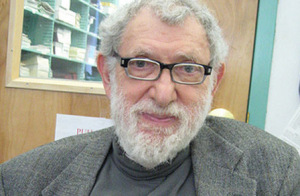A Quote by Robert Graves
There's no money in poetry, but then there's no poetry in money, either.
Related Quotes
Poetry is the most informative of all of the arts because everything comes down to poetry. No matter what it is we are describing, ultimately we use either a metaphor; or we say "that's poetry in motion." You drink a glass of wine and say, "that's poetry in a bottle." Everything is poetry, so I think we come down to emotional information. And that's what poetry conveys.
To walk in money through the night crowd, protected by money, lulled by money, dulled by money, the crowd itself a money, the breath money, no least single object anywhere that is not money. Money, money everywhere and still not enough! And then no money, or a little money, or less money, or more money but money always money. and if you have money, or you don't have money, it is the money that counts, and money makes money, but what makes money make money?
I would not recommend poetry as a career. In the first place, it's impossible in this time and place - in this culture - to make poetry a career. The writing of poetry is one thing. It's an obsession, the scratching of a divine itch, and has nothing to do with money. You can, however, make a career out of being a poet by teaching, traveling around, and giving lectures. It's a thin living at best.




































